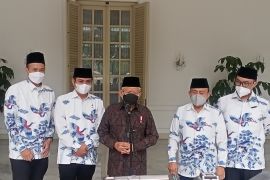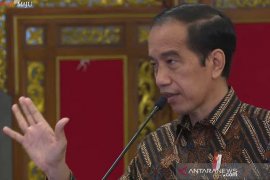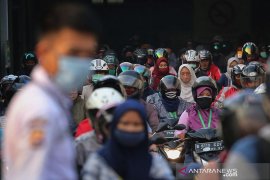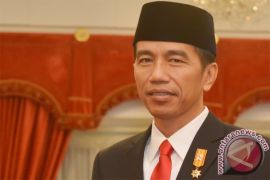"We hope and are optimistic that the extension of KUR credits this year will surpass Rp100 trillion," Hipmi Chairman for Economic, Finance and Banking Affairs, Irfan Anwar, said in Jakarta on Tuesday.
According to Irfan, the KUR credit performance in 2016 was better compared to 2015. The realization of KUR credits in 2015 only stood at Rp22.7 trillion, or only about 75.58 percent of the KUR amount allocated by the government at Rp30 trillion.
But in 2016, it jumped to Rp94.4 trillion, with bad credits accounting for 0.37 percent.
In the meantime, a lawmaker said that the governments micro business loan (KUR) program must really be aimed at small business players, in order to improve their welfare.
"The KUR program should not miss its target," Achmad Haisz Tohir, member of Commission XI on financial affairs of the House of Representatives (DPR), said in Jakarta on Friday (Feb 10).
He stated that relatively large businesses should not be given the subsidized peoples micro credit (KUR) scheme, because they would be financially capable or can even take commercial credit with high interest.
The legislator added that he had requested for the subsidized loans under the KUR program, given to micro business in the agriculture, forestry, maritime, and labor sectors, to be increased from 20 percent to 40 percent.
He added that the street vendors also deserve the KUR credits.
President Joko Widodo (Jokowi) has asked financial industries to help reinforce the distribution of their credits, notably the KUR credits to the micro, small, and medium-scale enterprises (UMKM).
"I ask financial industries, particularly regional development banks (BPD), to provide the KUR credits to micro and small businesses and fishermen," he noted.
Jokowi has also given directives to governors requesting them to provide bank interest subsidies from their regional budget so that it could help develop regional economy. Thus, financial service industries in the regions are expected to be intensive in promoting the KUR facility directly to the people.
Chief economic minister Darmin Nasution said that the KUR distribution has been evenly distributed across the country in 2016, although most of the credits were still concentrated in Java.
"Yet, I do not see imbalances in this matter, because some 54 percent of the poor are in Java," he added.
The people of middle income and below and the highest rice production areas are still concentrated in Java. Thus, the largest portion of the KUR credit is distributed in Java, Darmin remarked.(*)
Editor: Heru Purwanto
Copyright © ANTARA 2017










